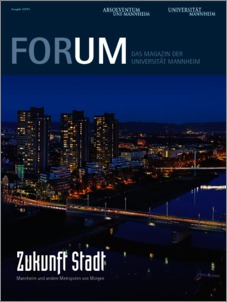|
Forum
![[img]](https://madoc.bib.uni-mannheim.de/style/images/fileicons/application_pdf.png)  Vorschau |
|
PDF
FORUM 1-2015.pdf
- Veröffentlichte Version
Download (2MB)
|
|
Körperschaften:
|
Rektor der Universität Mannheim
;
Absolventum Mannheim
|
Mitwirkende
(z.B. Übers., Bearb.):
|
Bär, Katja
|
|
URL:
|
https://ub-madoc.bib.uni-mannheim.de/38747
|
|
URN:
|
urn:nbn:de:bsz:180-madoc-387477
|
|
Dokumenttyp:
|
Zeitschrift / Schriftenreihe
|
|
Erscheinungsjahr:
|
2015
|
|
Titel einer Zeitschrift oder einer Reihe:
|
Forum : das Magazin der Universität Mannheim
|
|
Band/Volume:
|
2015
|
|
Heft/Issue:
|
1
|
|
Ort der Veröffentlichung:
|
Mannheim
|
|
Verlag:
|
Universität
|
|
ISSN:
|
1613-1622
|
|
Sprache der Veröffentlichung:
|
Deutsch und Englisch
|
|
Einrichtung:
|
Zentrale Einrichtungen > Absolventum
Zentrale Einrichtungen > Verwaltung
|
|
MADOC-Schriftenreihe:
|
Veröffentlichungen der Universität Mannheim > Forum
|
|
Fachgebiet:
|
000 Allgemeines, Wissenschaft
|
|
Normierte Schlagwörter (SWD):
|
Zeitschrift , Gesellschaft der Freunde der Universität Mannheim , Mannheim / Universität
|
|
Freie Schlagwörter (Deutsch):
|
Mannheim , Universität , Forschung , Zukunft , Gegenwart
|
|
Abstract:
|
Straßenbeleuchtung und elektrisches Licht in allen Wohnungen,
eine unterirdische Stadtbahn und motorgetriebene Fahrzeuge auf
den Straßen – so stellte sich Jules Verne im Jahre 1863 das Paris
des 20. Jahrhunderts vor und sollte Recht behalten. Beim Schreiben
seiner Romane orientierte er sich stets an der Forschung seiner Zeit.
Auch an der Universität Mannheim wird erforscht, wie die Stadt von
Morgen aussieht, welche Hürden es dort zu meistern gibt und welche
Möglichkeiten sie bietet. So tüfteln Mannheimer Wirtschaftsinformatiker
gerade an einer Software, die Rechenzentren – den
größten Energieverbrauchern in der Stadt der Zukunft – dabei hilft,
Strom intelligent zu verbrauchen (S. 12). Was Städte tun können,
um Zuwanderung für die eigene wirtschaftliche Entwicklung positiv
zu nutzen, dazu forscht das Institut für Mittelstandsforschung
(S. 22). Auf Seite 20 prophezeit der Politikwissenschaftler Prof. Dr.
Jan van Deth deutschen Großstädten indessen eine schwierige
lokalpolitische Zukunft, die durch neue Formen der politischen
Partizipation
entsteht. Und in einem Interview spricht Oberbürgermeister
Dr. Peter Kurz über seine Visionen für das künftige
Mannheim (S. 16).
Während an der Zukunft noch gearbeitet und geforscht wird,
feilt die Universität Mannheim weiterhin aktiv an der Gegenwart:
Anfang des Jahres haben die Rektoren der baden-württembergischen
Hochschulen mit der Landesregierung den Finanzierungsvertrag
„Perspektive 2020“ abgeschlossen. Ob das für die Universitäten
ein Grund zum Feiern ist, darüber spricht Wissenschaftsministerin
Theresia Bauer in einem Interview auf Seite 6. In Feierlaune darf
dieses Jahr jedenfalls Deutschlands größtes und ältestes Alumni-
Netzwerk sein: ABSOLVENTUM wird zwanzig und begeht das Jubiläum
mit einer Podiumsdiskussion im Mai mit Persönlichkeiten aus
Wirtschaft, Politik und Wissenschaft (S. 37). Hochrangige Gäste
erwartet auch die Abteilung Volkswirtschaftslehre. Bei der Jahrestagung
der European Economic Association, die im Sommer zum
ersten Mal seit 17 Jahren wieder in Deutschland stattfindet, sind
unter den über tausend Ökonominnen und Ökonomen auch zwei
Wirtschaftsnobelpreisträger zu Gast im Schloss (S. 37).
|
|
Übersetzung des Abstracts:
|
Street lighting and electric light in all homes, an underground tram
and motorised vehicles on the streets – this was how Jules Verne in
1863 imagined Paris in the 20th century – and was proved right.
When writing, he always aligned his novels with the research of his
time. At the University of Mannheim research is also being carried
out concerning what the city of tomorrow will look like, what
obstacles will have to be overcome there and what possibilities it
offers. Mannheim IT business engineers are at the moment working
on software which will help data centres – the biggest energy consumers
in the city of the future – to consume electricity intelligently
(p. 12). What cities can do to use immigration positively for
their own economic development is being investigated by the
Institute for SME Research and Entrepreneurship (p. 22). On page 20
the political scientist Prof. Dr. Jan van Deth is meanwhile prophecying
a difficult future for local politics in large German cities, this
being the result of new forms of political participation. And in an
interview Lord Mayor Dr. Peter Kurz talks about his visions for
Mannheim
in the future (p. 16).
While work and research about the future is still going on, the
University of Mannheim continues to work actively on the present:
at the beginning of the year the rectors and presidents of the universities
in Baden-Württemberg concluded the financing contract
“Perspectives 2020” with the state government. Theresia Bauer,
Minister of Science, Research and the Arts, talks about whether this
is a reason for the universities to celebrate in an interview on page 6.
In any case, Germany’s largest and oldest alumni network is in a
festive mood this year: ABSOLVENTUM will be twenty and is marking
the anniversary with a panel discussion in May with well-known
personalities from business, politics and science (p. 37). High-ranking
visitors are also expected by the Department of Economics. At the
annual conference of the European Economic Association, which
will be taking place in Germany again for the first time in
17 years, amongst the more than a thousand economists will be two
winners of the Nobel Prize in Economics as guests at Mannheim
Palace (p. 37).
(Englisch)
|
 | Dieser Eintrag ist Teil der Universitätsbibliographie. |
 | Das Dokument wird vom Publikationsserver der Universitätsbibliothek Mannheim bereitgestellt. |
Sie haben einen Fehler gefunden? Teilen Sie uns Ihren Korrekturwunsch bitte hier mit: E-Mail
Actions (login required)
 |
Eintrag anzeigen |
|
|
